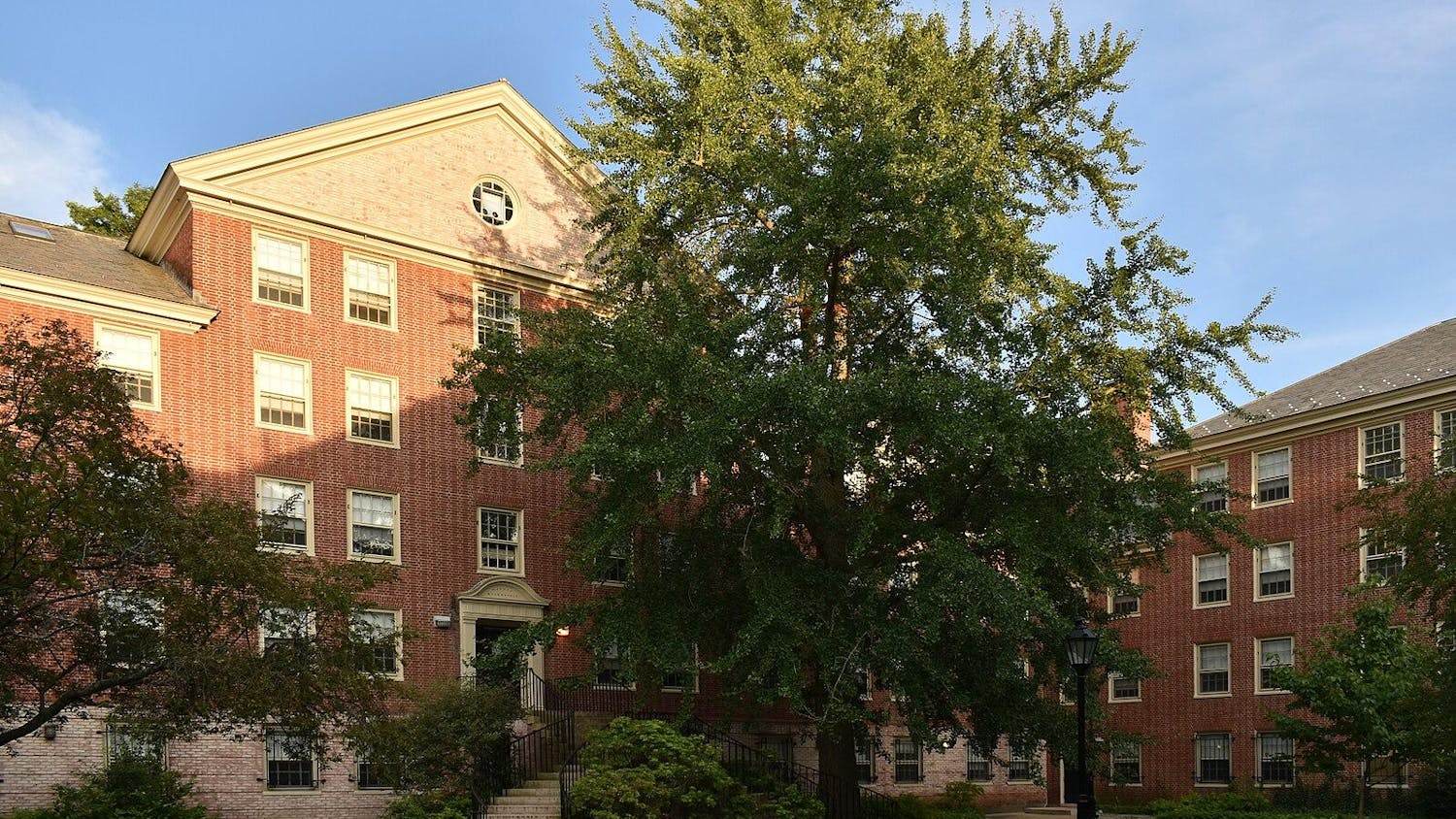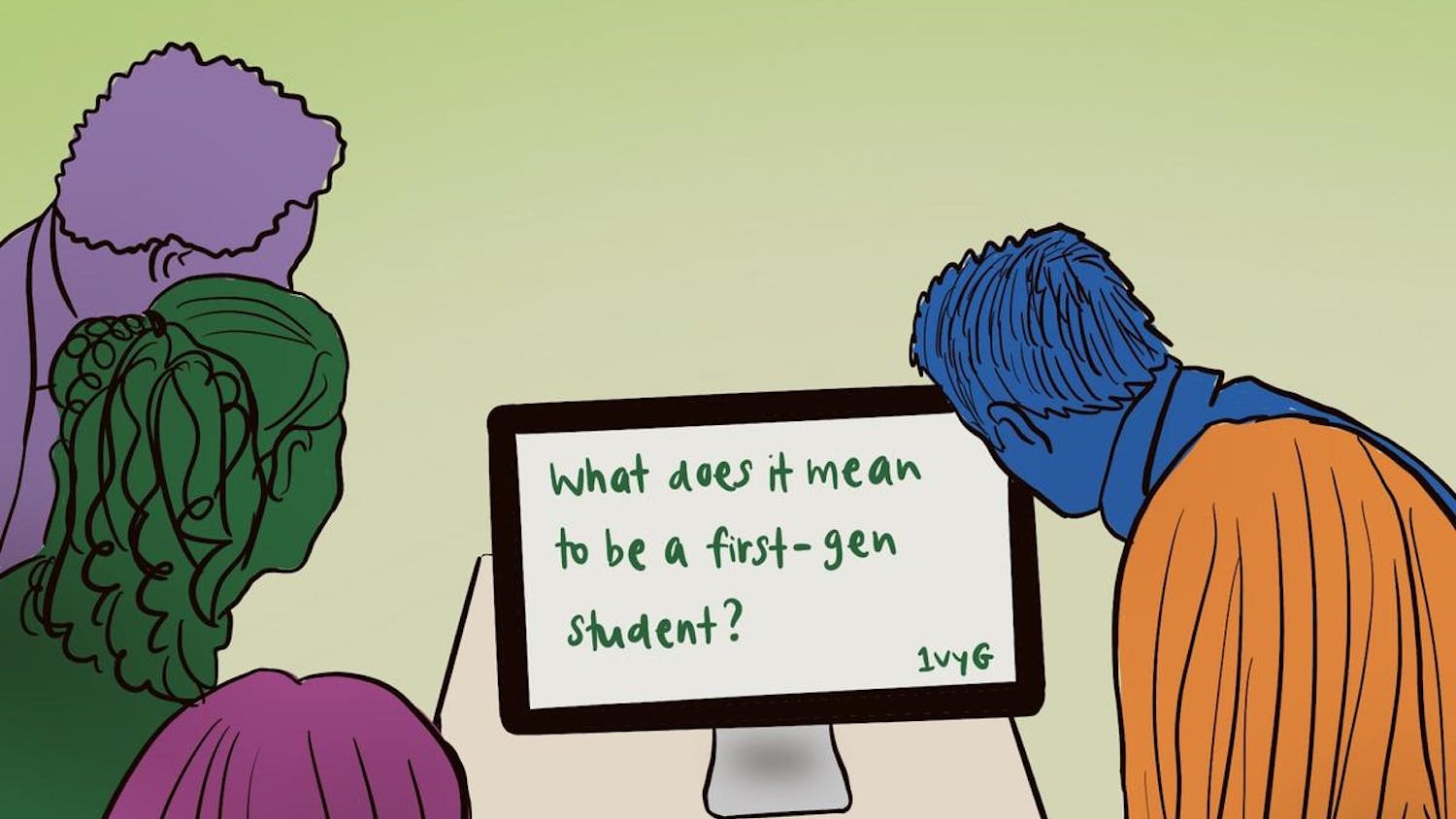The University took initial steps toward charting new paths for the curriculum with the release Friday of the interim report of the Committee on Educational Innovation.
The set of preliminary recommendations included a three-year bachelor’s degree, 250 online courses, a reconfiguration of the Program in Liberal Medical Education and programs to incorporate international and community engagement experiences into select courses.
Along with the other five University strategic planning committees, the Committee on Educational Innovation will seek input from the campus community this semester, honing its recommendations for a final report to be released in May, said Dean of the College Katherine Bergeron, the committee’s chair. It will also present its preliminary ideas at the Corporation meeting next month.
The committee’s outreach will begin Wednesday with a meeting with the Undergraduate Council of Students, Bergeron said. Open forums, potentially in conjunction with other strategic planning committees, will follow throughout the semester, she said.
The recommendations are part of a University effort to adapt its core strengths and ideals to a modern age, Bergeron said. If finalized and implemented, the changes would likely guide much of President Christina Paxson’s tenure. Many of the recommendations address untethering students from traditional expectations of where, when and in what modes they learn, with particular emphases on interdisciplinary, global, practical and online education.
Throughout the committee’s process of discussing and formulating plans, members were committed to preserving the tenets of the New Curriculum and building on Brown’s existing strengths, Bergeron said.
As conversations continue this semester, some of the committee’s ideas might merge with those from other committees, Bergeron said, adding that the process of soliciting campus feedback will allow the administration to choose “the best ideas or the ones that have the most potential for enhancing what we do at Brown.” Timelines for the recommendations will vary widely, Bergeron said, with some to be implemented within months and others to take years to build.
The recommendation of a three-year degree program, which would draw primarily on pre-Brown credits and allow more students to enter the University with sophomore standing, is one of the committee’s most significant proposed changes, Bergeron said.
Rather than “a program where students would try to cram four years of credit into three,” Bergeron said, the option would provide a path for students to intentionally accumulate college credits in high school. The University currently allows students with enough International Baccalaureate credits to apply for advanced standing, but this recommendation might also entail a retooling of current policies on accepting online transfer credits. The latter was already recommended in the June 2012 report of the Ad Hoc Committee on Online Education. Bergeron said she did not know how Advanced Placement credits might factor in.
The program would be an attempt to help make a Brown education more accessible to those who cannot afford it, Bergeron said. The report specifically marked it as a way to attract student populations underrepresented at Brown, including veterans.
Chaney Harrison ’11.5, a veteran who served on the Task Force on Undergraduate Education from 2007 to 2008, said the proposal would be suited to the reality of individuals who serve in the military. “A lot of veterans, especially in today’s military, are getting lots of access to pretty advanced academic curriculums,” he said, providing them significant academic credit. Though Harrison had an associate’s degree when he left the Air Force, none of his work translated to Brown credits. But offering a three-year degree would be meaningful only if it were accompanied by changes in transfer credit policies, he said.
The program would also tie into another of the committee’s recommendations — a greater sophomore-year emphasis on issues of equity, diversity and justice. These would include a sophomore seminar program not unlike first-year seminars but “focused on questions of identity and difference,” according to the report, and recommendations that students consider “diversity education” in the concentration declaration process.
Under the heading “Flexible Brown,” the report also recommended the creation of a competitive five-year program that would allow students to combine undergraduate studies with a master’s degree, an internship or other research and service.
The committee’s report focused significantly on interdisciplinary learning and included a recommendation to create “paired courses” — two connected classes from different disciplines that students would take simultaneously over the course of a semester or a year.
And under a recommendation titled “Liberated Pre-Medical Education,” the committee proposed changes to the PLME curriculum that would capitalize on students’ flexibility to forge new modes of learning. These could include courses that combined biology and chemistry or math and physics, with an emphasis on integrated and case study-based learning, Bergeron said.
“If we were to come up with the right idea, we might really become a leader in this field,” she said. The concept had already been set in motion by Associate Dean for Medical Education Philip Gruppuso, she added.
The report also included a recommendation to introduce more innovative methods of learning into the University’s large introductory science courses. Bergeron said studies have proven the value of “more hands-on learning, more experimental practices and creative assessments,” and the committee hopes to make such changes “a reality in every single department.”
Another main emphasis of the report was global learning. The committee recommended embedding short-term study abroad components — potentially over spring or winter break — into select small courses, which would be chosen and funded through a competitive process, Bergeron said.
That could tie into another recommendation to forge ties with courses at international partner institutions, many of which have expressed their interest in greater academic connections, Bergeron said. Through live video chats, short visits or other means, classrooms at Brown would establish relationships with their counterparts abroad.
The proposals would help boost the University’s overall efforts to expand the international nature of students’ learning, said Matthew Gutmann, vice president for international affairs. “The more that undergrads at Brown can learn about and spend time abroad … the more they’re going to be able to participate as global citizens in the long run,” he said, adding that the University wants more students to study abroad at locations outside of Europe in particular.
A proposed International Center — another of the report’s recommendations, which would centralize international students, faculty members and studies on campus — has already been developing as an idea, Gutmann said, but still needs staffing and a site, among other priorities. “We really need it at Brown. Most major universities have it, and we’ve suffered because we haven’t,” he said, adding that the committee’s emphasis on the center could rejuvenate efforts to get it off the ground.
After the University announced last semester that it would pilot three not-for-credit courses open to the public online through Coursera, as well as some for-credit online summer courses for Brown students, the committee submitted a goal of 250 online or partially online courses in honor of the University’s 250th anniversary next year. These would include massive open online courses, for-credit summer courses and academic-year “flipped” courses, which often combine online lectures with in-person problem-solving and participatory work.
Also included in the report were recommendations to boost Brown’s connection with its surrounding community. The committee’s proposed Program in Engaged Scholarship would incorporate community involvement components throughout the curriculum, as well as a TRI-lab — teaching, research and impact — that would combine students, faculty and local leaders to address specific societal issues.
Both ideas — the Program in Engaged Scholarship and the TRI-lab — were already set in motion by the Swearer Center for Public Service last year, said Roger Nozaki MAT’89, director of the Swearer Center and associate dean of the College for Community and Global Engagement. “I felt like it was a strong statement of the values and context and culture of the Brown curriculum,” he said of the report, adding that the TRI-lab might be piloted as early as this fall.
ADVERTISEMENT




